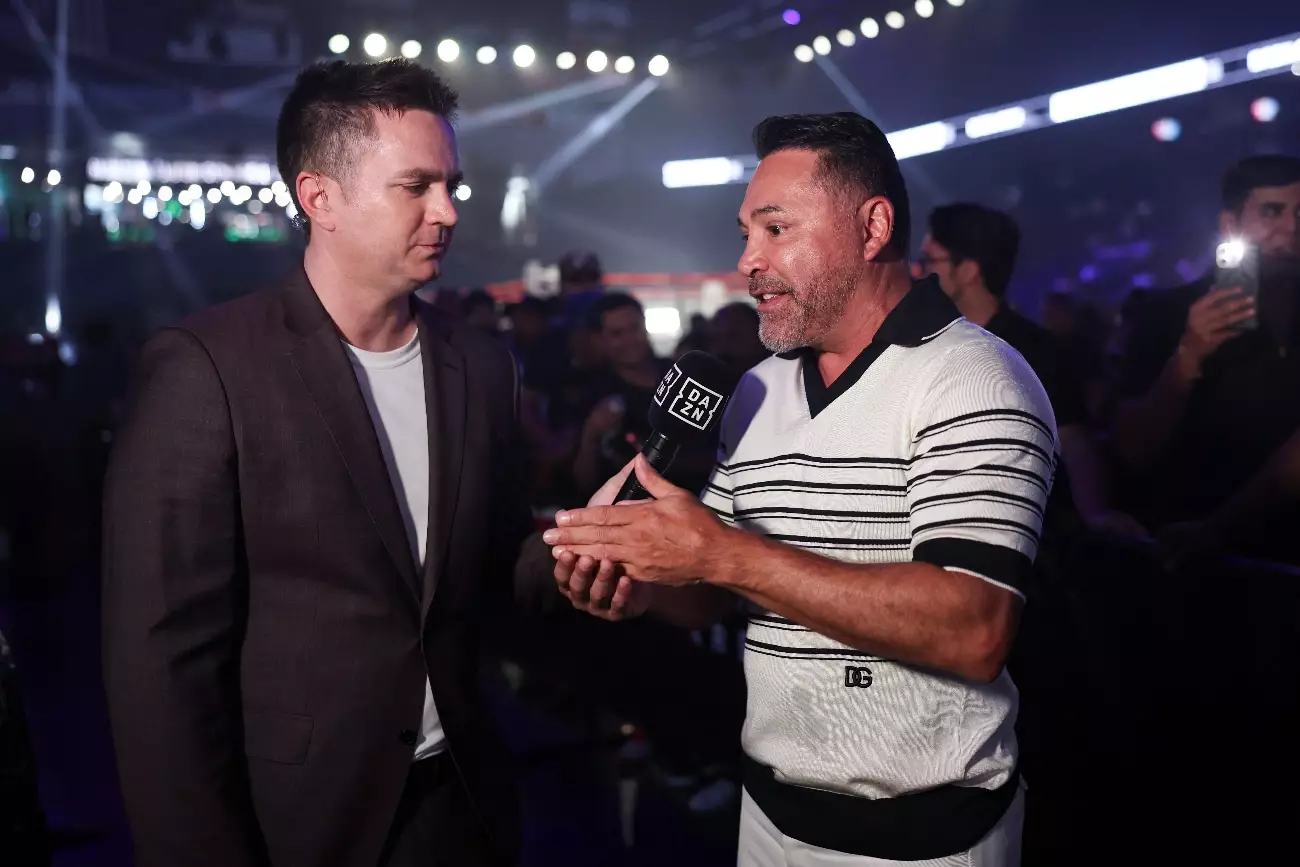In the world of boxing, promoter Oscar De La Hoya is no stranger to stirring the pot. His recent remarks about the potential match between Canelo Alvarez and British fighter Chris Eubank Jr. serve as a glaring example of this. De La Hoya’s critique is rooted not just in personal rivalry but hints at deeper concerns regarding the credibility and competitiveness of the boxing landscape, particularly when it involves choices made by high-profile fighters like Canelo.
Oscar De La Hoya’s disdain for the prospect of a Canelo vs. Eubank fight mainly stems from the perception that Eubank Jr. is not an appropriate challenger. With a record boasting 34 wins, 25 by knockout, Eubank Jr. does have a commendable fighting pedigree, but the level of competition he has faced raises questions. De La Hoya’s scathing remarks highlight a significant issue in boxing: the tendency of seasoned champions to take on less formidable opponents instead of engaging with high-caliber fighters who could truly test their abilities.
Eubank Jr. is often viewed as a product of his lineage rather than his skills. While he indeed comes from a boxing family—his father being a well-respected fighter—many in the boxing community question whether he has genuinely earned his place in elite discussions. His recent victory over journeyman Kamil Szeremeta, following a long layoff, does little to bolster his case for a shot at Alvarez’s prestigious titles.
Canelo Alvarez is undoubtedly one of boxing’s biggest stars, holding titles across several organizations, including the WBA, WBC, and WBO super middleweight belts. Yet, as De La Hoya contends, his choice of opponents often seems to reflect a prioritization of financial gain over genuine competition. Oscar’s criticism directs attention to the fear that supporting a fight against a perceived weaker opponent could undermine Alvarez’s legacy.
The promoter’s desire to see Canelo face tougher challengers, such as David Benavidez, Artur Beterbiev, or Dmitry Bivol, emphasizes an important dialogue about the responsibilities of champions in the sport. Instead of taking the easier road by choosing well-known names that may lack the skill to provide a challenge, the boxing community yearns for high-stakes matchups that can elevate the sport in the eyes of both fans and critics alike.
The backlash from De La Hoya’s comments could ignite an interesting discourse among fans and analysts alike. On one hand, De La Hoya’s loyalty to boxing’s integrity is commendable, highlighting a call for champions to face genuine contenders. On the other hand, a certain segment of the fanbase may argue that Eubank Jr., with his British following and marketed appeal, can inspire large attendance and viewership, even if the match lacks competitive depth.
Ultimately, boxing is at a crossroads where fan expectations must balance with the promotional realities of the sport. The hope that fan enthusiasm will translate into actual competitive fights remains strong. As De La Hoya boldly criticizes potential matchups like Canelo versus Eubank Jr., he simultaneously ignites a conversation about what fans truly want from boxing’s elite: compelling, high-stakes matchups that genuinely test their champions.

